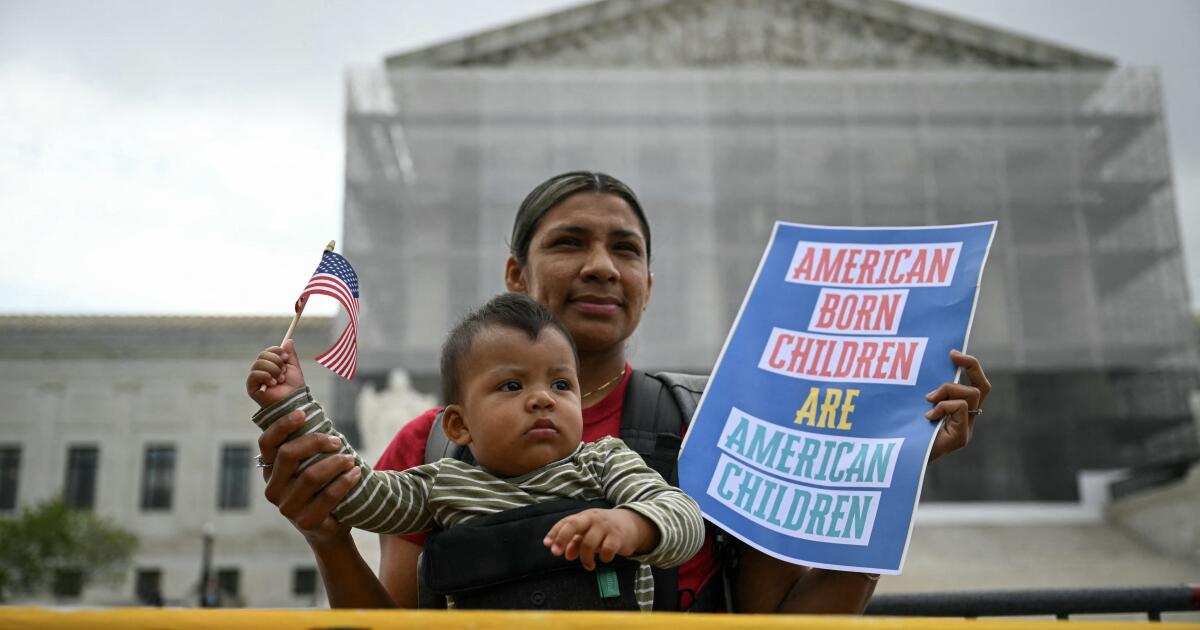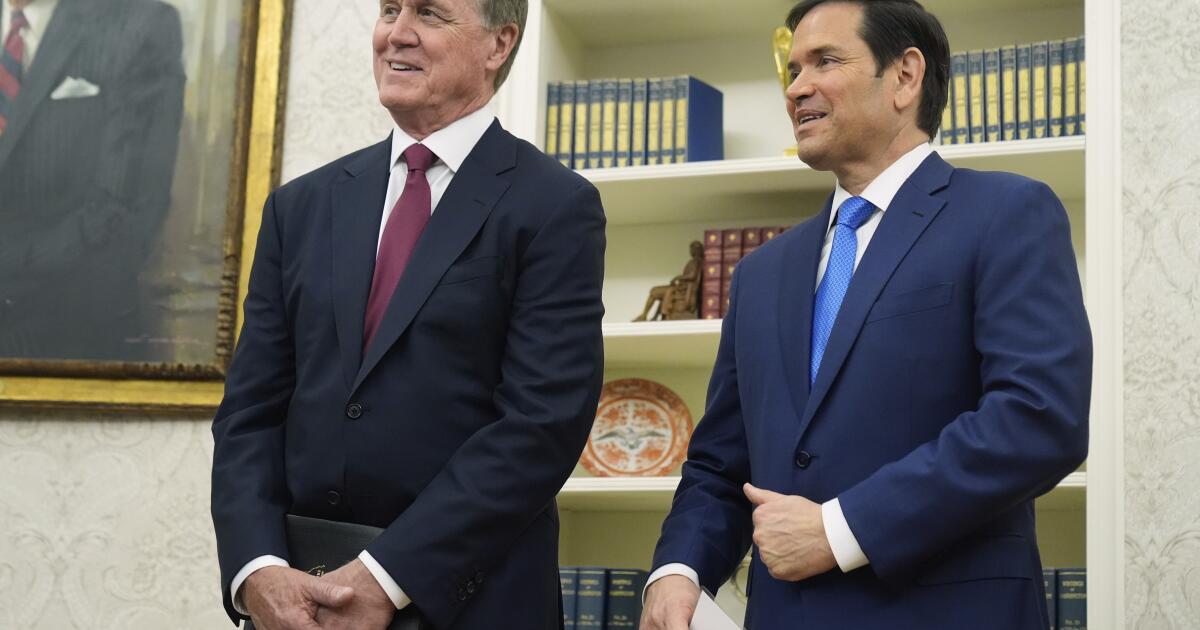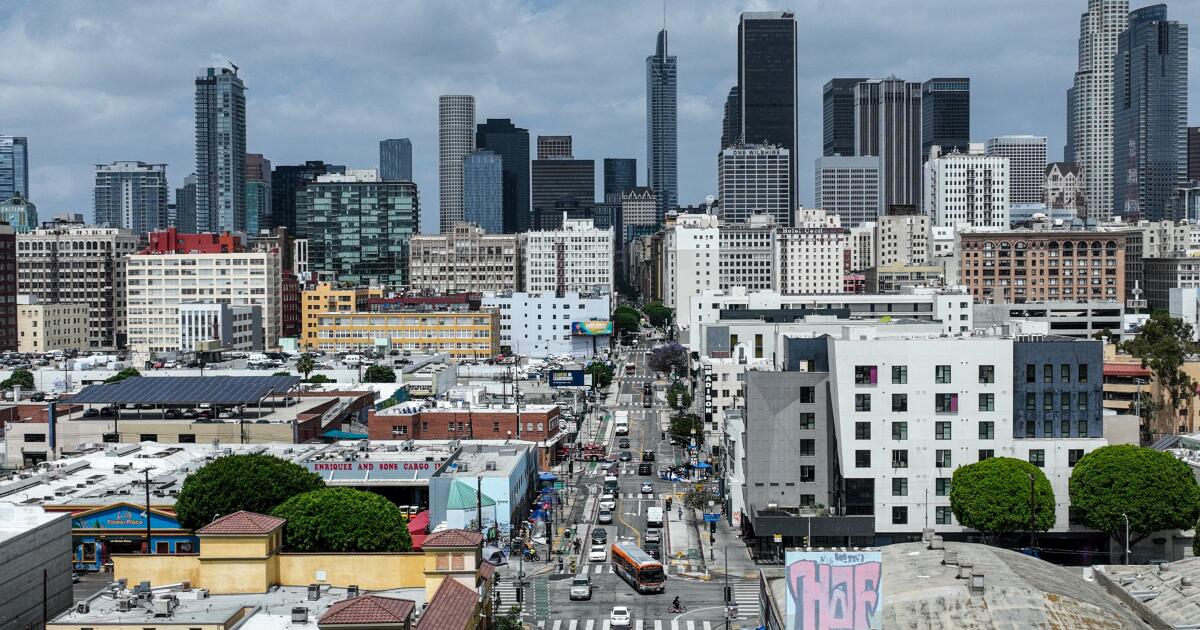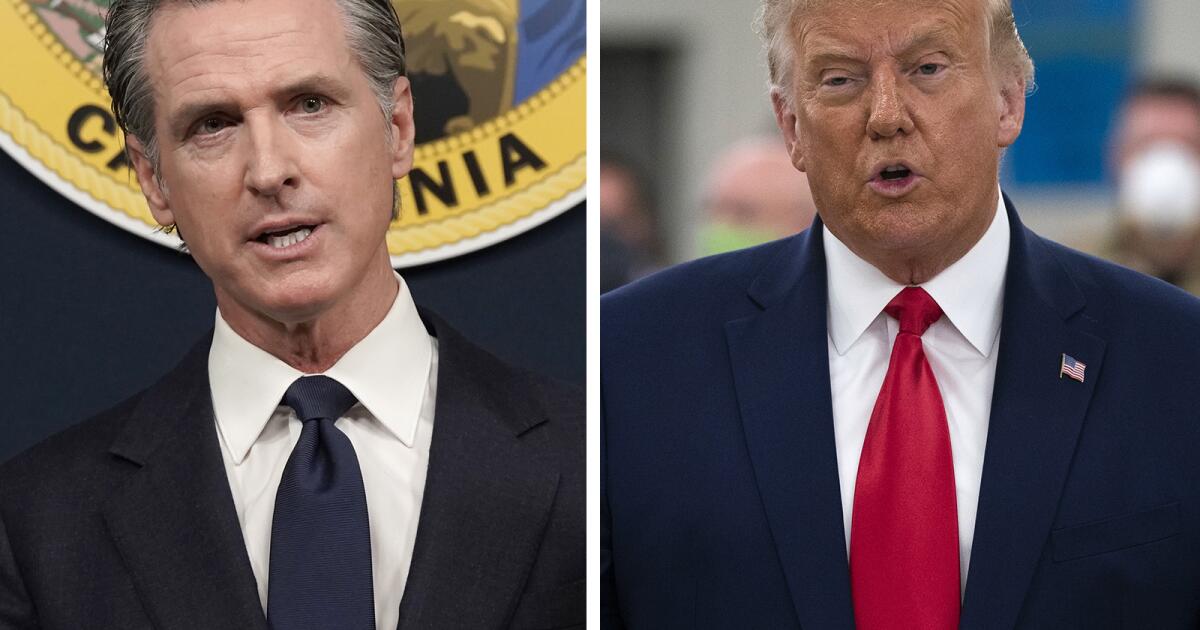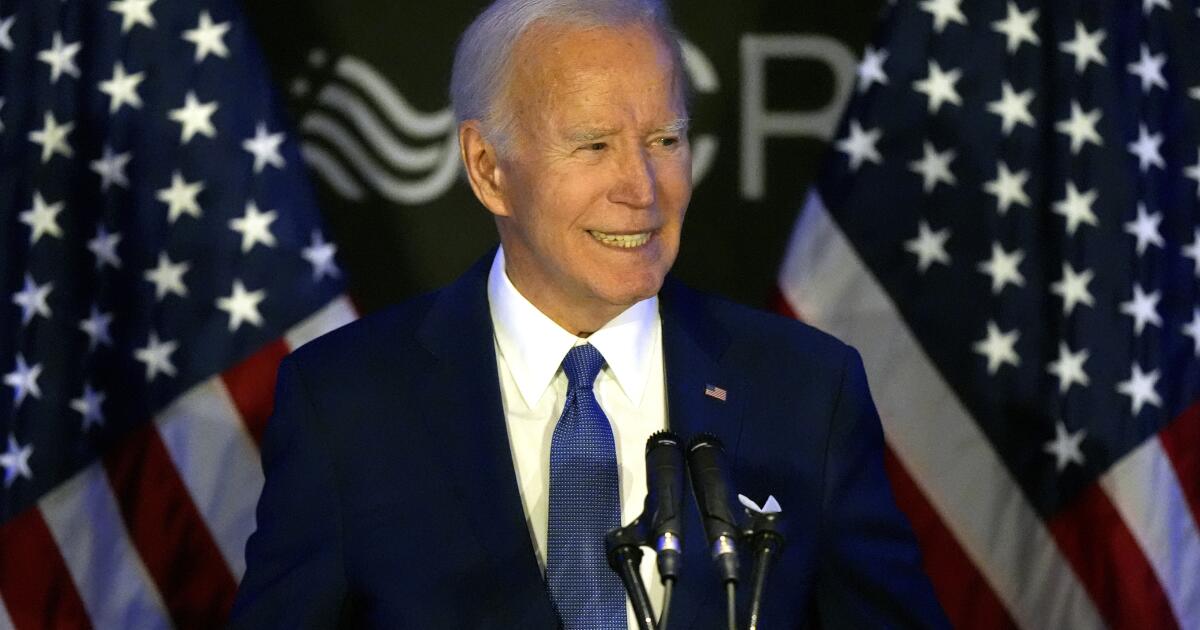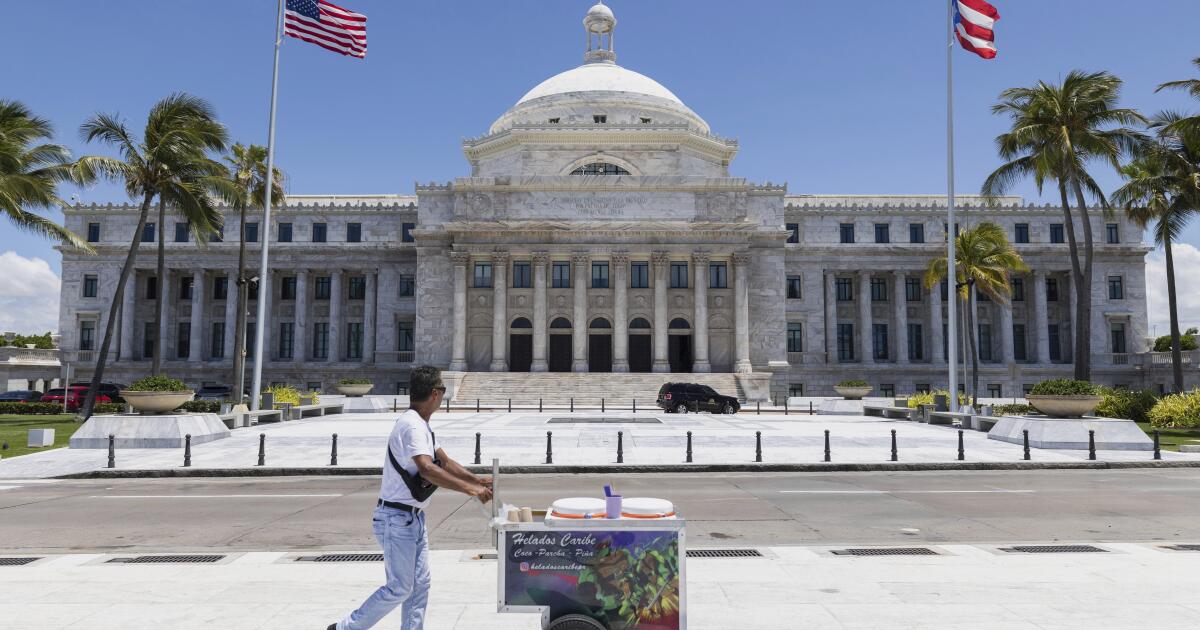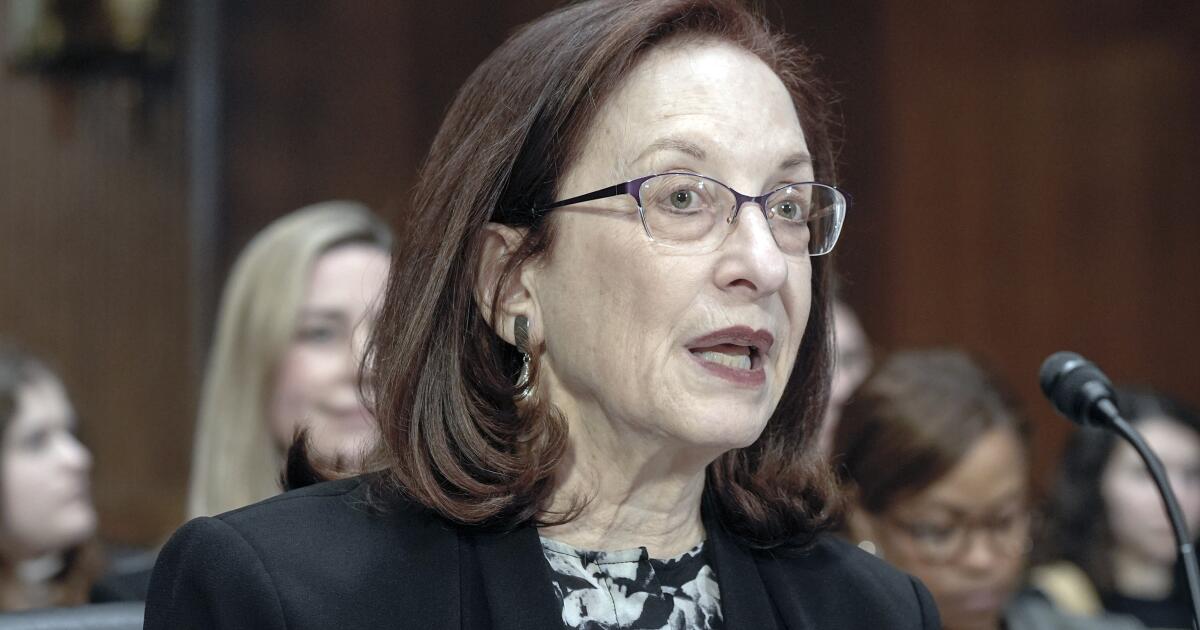SAN JUAN, Puerto Rico — As a trade war sparked by President Trump’s tariffs stokes worry and uncertainty in the global economy, Puerto Rico sees an opportunity.
Government officials in the U.S. territory are jumping on planes to try to persuade international companies to relocate their manufacturing plants to the island, where they would be exempt from tariffs.
Any relocation would be a boost to Puerto Rico’s shaky economy as the government emerges from a historic bankruptcy and continues to struggle with chronic power outages. The island also is bracing for potentially big cuts in federal funding under the Trump administration, with federal funds accounting for more than half of Puerto Rico’s budget.
“The tariff issue is a controversial one, but for Puerto Rico, it’s a great opportunity,” said Gov. Jenniffer González.
Manufacturing remains the island’s biggest industry, representing nearly half of its gross domestic product. But the government wants to recapture Puerto Rico’s heyday, when dozens of big-name companies, especially in the pharmaceutical sector, were based here and kept the economy humming.
So far, officials have identified between 75 and 100 companies that might consider relocating operations to Puerto Rico given the ongoing trade war, said Ella Woger-Nieves, chief executive of Invest Puerto Rico, a public-private partnership that promotes the island as a business and investment destination.
The companies identified work in sectors including aerospace, pharmaceuticals and medical devices.
Officials also have welcomed site selectors to Puerto Rico and organized tours to show them the island’s infrastructure and emphasize that tariffs wouldn’t apply here.
“This is the moment to plant those seeds,” Woger-Nieves said.
She said officials with Invest Puerto Rico and various government agencies are expected to make nearly 20 more trips this year in a bid to attract more manufacturing. The government praised an executive order that Trump signed May 5 that aims to reduce the time it takes to approve construction of pharmaceutical manufacturing facilities in the U.S.
From needlework to chemicals
In the mid-1900s, needlework was one of Puerto Rico’s largest industries, employing about 7,000 workers who labored on handkerchiefs, underwear, bedspreads and other items, according to a 1934 fair competition code signed by President Franklin D. Roosevelt.
Manufacturing later shifted to chemicals, clothes and electronics. By the late 1970s, a growing number of pharmaceutical companies began moving their operations to Puerto Rico, lured by a federal tax incentive created in 1976 to help boost the island’s economic growth. However, in 1996, the U.S. government began phasing out the incentive, which had exempted the subsidiaries of U.S. companies operating in Puerto Rico from federal taxes on local profits.
From 1995 to 2005, overall manufacturing employment fell by nearly 30%, but employment in the sectors of pharmaceuticals, medicines and chemicals increased by at least 10%, according to the U.S. Bureau of Labor Statistics.
Puerto Rico continues to lead U.S. exports of pharmaceutical and medicine manufacturing, representing nearly 20% of total U.S. exports in 2020, according to the bureau.
In 2024, the island exported nearly $25 billion worth of goods, including $11 billion in vaccines and certain cultures; $7 billion worth of packaged medicaments; $1 billion in hormones; $984 million in orthopedic items; and $625 million worth of medical instruments, according to the Observatory of Economic Complexity.
Sergio Marxuach, policy director and general counsel for the Center for a New Economy, a nonprofit, nonpartisan think tank, said the push to attract more companies makes sense, especially recruiting those in the pharmaceutical and medical device sectors.
“If I were advising the government, begin there, because you already have a footprint,” he said.
Marxuach noted that outside of those areas, Puerto Rico could have an advantage when it comes to national defense and security contracts, including the manufacturing of drones or underwater surveillance systems.
“They need a place to manufacture in scale,” he said, adding that doing so in a U.S. jurisdiction is key.
Puerto Rico’s government also is meeting with university officials to potentially change curriculums if needed to ensure students are graduating with the skills required by companies.
The Achilles’ heel
Puerto Rico touts its U.S. jurisdiction, tax incentives and skilled workforce as reasons international companies should relocate to the island.
But it cannot escape its well-known energy problems.
Chronic power outages continue to plague Puerto Rico, with two island-wide blackouts occurring, on Dec. 31 and April 16.
Crews are still repairing the power grid after it was razed by Hurricane Maria in September 2017, a powerful Category 4 storm. But the grid was already fragile from lack of maintenance and investment for decades.
“Puerto Rico needs more reliable energy for the economic growth to improve,” said Robert F. Mujica, executive director of a federal control board that oversees the island’s finances.
Woger-Nieves, of Invest Puerto Rico, said that when officials meet with company leaders, they explain the state of the island’s energy infrastructure and offer alternatives including cogeneration and renewables.
“Power doesn’t have to necessarily be an impediment,” she said.
Marxuach, with the Center for a New Economy, said Puerto Rico’s energy system is costly and inefficient, and he noted that alternatives can be expensive.
“Puerto Rico has to address some issues that actually create additional costs for investors to come here,” he said.
One of those costs is that any goods sent to the U.S. from Puerto Rico must by law be sent aboard a U.S.-flagged vessel with a U.S. crew.
Other challenges remain.
Currently, the short-term reaction of many CEOs and companies “is basically to wait and see” how the tariff war plays out, Marxuach said.
Trump has said that he wants to keep some tariffs in place, but he also has mentioned efforts to reach deals with trading partners. His team said Trump is using “strategic uncertainty” to his advantage.
Another problem is that relocating operations takes years, not months, and foreign competitors also are vying for the attention of international companies.
“We’re competing with Vietnam, South Korea, Malaysia, Singapore, that have very advanced manufacturing facilities already,” Marxuach said. “It’s not a slam dunk.”
Coto writes for the Associated Press.

